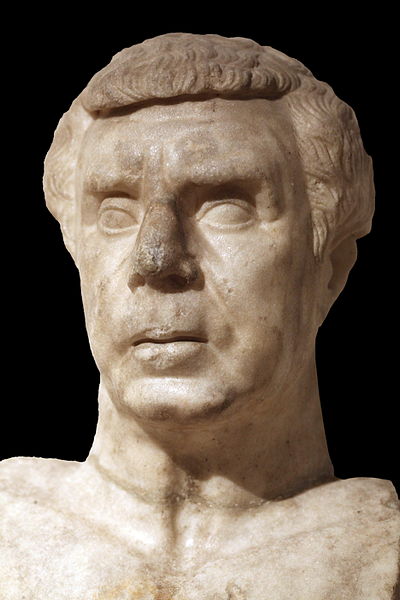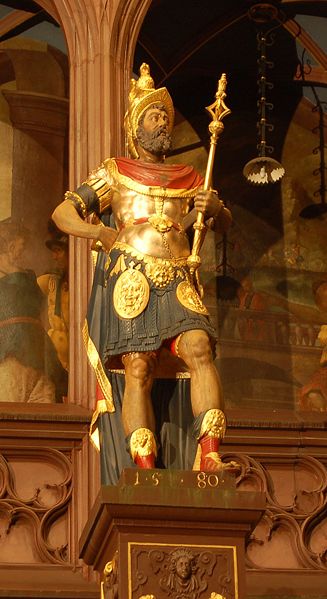Lucius Munatius Plancus was a Roman senator, consul in 42 BC, and censor in 22 BC with Paullus Aemilius Lepidus. He is one of the classic historical examples of men who have managed to survive very dangerous circumstances by constantly shifting their allegiances. Beginning his career under Julius Caesar, he allied with his assassin Decimus Junius Brutus in 44 BC, then with the Second Triumvirate in 43 BC, joining Mark Antony in 40 BC, and deserting him for Octavian in 32 BC. He also founded the cities of Augusta Raurica and Lugdunum. His tomb is still visible at Gaeta.
Bust of Plancus symbolising Roman philosophy. The bust has been said to show evidence of hemiplegia. Found in 1823 near the Jardin des Plantes and the amphitheatre of Lyon. On display at the Gallo-Roman Museum of Lyon.
A statue from 1580 depicting Plancus in the city hall of Basel, Switzerland.
Mausoleum of Plancus in Gaeta.
The censor was a magistrate in ancient Rome who was responsible for maintaining the census, supervising public morality, and overseeing certain aspects of the government's finances.
Scene of census-taking from the so-called Altar of Domitius Ahenobarbus, late 2nd century BC
The Temple of Saturn, which housed the aerarium Saturni and the aerarium sanctum
Appius Claudius Caecus, one of the most influential censors






